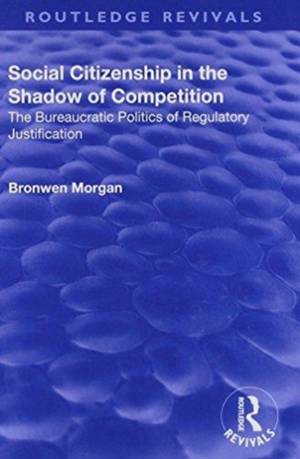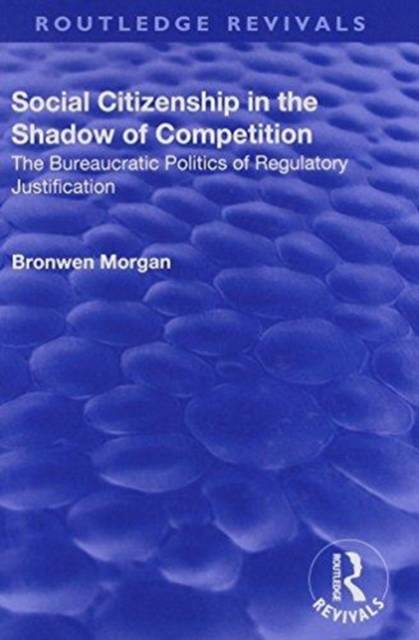
Door een staking bij bpost kan je online bestelling op dit moment iets langer onderweg zijn dan voorzien. Dringend iets nodig? Onze winkels ontvangen jou met open armen!
- Afhalen na 1 uur in een winkel met voorraad
- Gratis thuislevering in België vanaf € 30
- Ruim aanbod met 7 miljoen producten
Door een staking bij bpost kan je online bestelling op dit moment iets langer onderweg zijn dan voorzien. Dringend iets nodig? Onze winkels ontvangen jou met open armen!
- Afhalen na 1 uur in een winkel met voorraad
- Gratis thuislevering in België vanaf € 30
- Ruim aanbod met 7 miljoen producten
Zoeken
Social Citizenship in the Shadow of Competition
The Bureaucratic Politics of Regulatory Justification
Bronwen Morgan
€ 104,45
+ 208 punten
Uitvoering
Omschrijving
Social Citizenship in the Shadow of Competition explores how economic concepts and tools are reshaping regulatory law. Building on studies that link law - both institutionally and discursively - to the legitimation of economic neo-liberalism, the book charts lawmakers' attempts to justify social welfare regulation in the language imposed by economic theory. It presents new qualitative findings from an ambitious regulatory reform programme targeting over 1,700 pieces of legislation. Bronwen Morgan argues that the interplay between economic discourse and lawmaking does not destroy the possibility of social citizenship; however, the subsequent regulatory conversations frequently silence or weaken the claims of vulnerable groups. Thus, even when vulnerable groups secure instrumental success, economic conceptions of bureaucratic rationality impoverish their capacity to express certain kinds of intangible values and aspirations. To expand or retain social citizenship requires that we learn to conceive of what matters in political economy without relying on the logic of utility or other instrumental rationalities.
Specificaties
Betrokkenen
- Auteur(s):
- Uitgeverij:
Inhoud
- Aantal bladzijden:
- 294
- Taal:
- Engels
- Reeks:
Eigenschappen
- Productcode (EAN):
- 9781138709935
- Verschijningsdatum:
- 22/11/2017
- Uitvoering:
- Hardcover
- Formaat:
- Genaaid
- Afmetingen:
- 151 mm x 219 mm
- Gewicht:
- 539 g

Alleen bij Standaard Boekhandel
+ 208 punten op je klantenkaart van Standaard Boekhandel
Beoordelingen
We publiceren alleen reviews die voldoen aan de voorwaarden voor reviews. Bekijk onze voorwaarden voor reviews.











